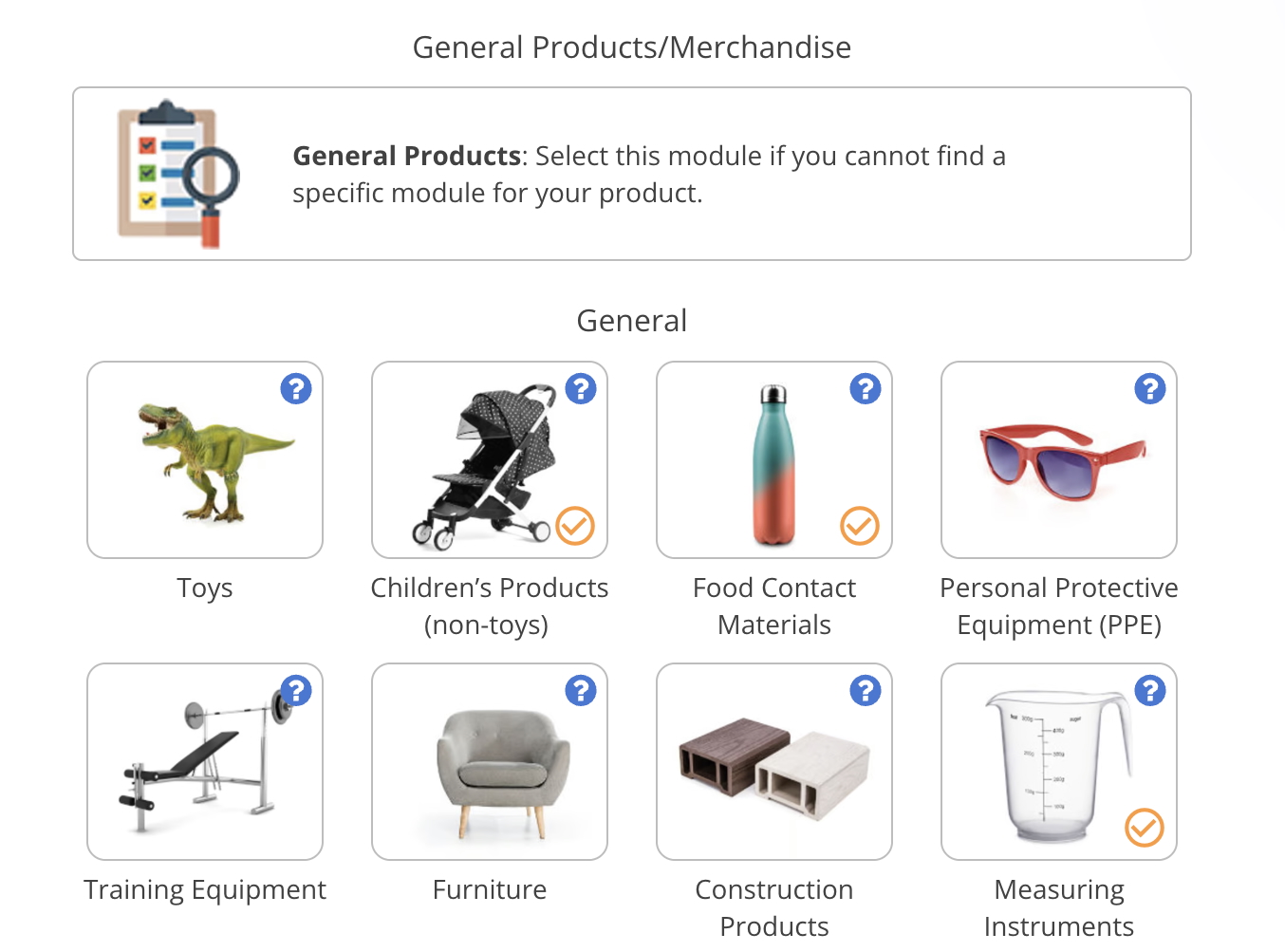Products subject to certain mandatory product safety rules must be covered by a General Certificate of Conformity (GCC). This guide explains how you can determine whether a General Certificate of Conformity is required for your product. We also provide examples of products subject to this requirement.
Content Overview

FREE CONSULTATION CALL (30 MIN)
 Ask questions about compliance requirements
Ask questions about compliance requirements Countries/markets:
Countries/markets:
 Learn how we can help your business
Learn how we can help your business
You will speak with:Ivan Malloci or John Vinod Khiatani
How to determine if your product requires a General Certificate of Conformity
You must create a General Certificate of Conformity if one or more CPSC product safety rules apply to your product.
Step 1: Is your product a general-use or children’s product?
There are two types of certificates, one being the General Certificate of Conformity and the other being the Children’s Product Certificate.
| Certificate | Scope |
| General Certificate of Conformity (GCC) | General-use products covered by CPSC rules |
| Children’s Product Certificate (CPC) | All children’s products (0 – 12 years) |
As such, if your product is deemed to be a children’s product, you must instead identify applicable children’s product safety rules and then create a Children’s Product Certificate (CPC) rather than a GCC.
Assuming that is not the case, you can proceed to step 2.
Step 2: Identify specific product safety rules
Most product safety rules mandating a General Certificate of Conformity (GCC) only apply to specific products and product categories. My recommendation is that you review the list of safety rules and list those that may apply.
Here are some examples of such rules:
Part 1420 – Requirements For All Terrain Vehicles
Part 1211 – Safety Standard for Automatic Residential Garage Door Operators
Part 1211 – Safety Standard for Automatic Residential Garage Door Operators
Part 1632 – Standard For the Flammability of Mattresses and Mattress Pads (Ff 4-72, Amended)
Part 1610 – Standard For the Flammability of Clothing Textiles

Step 3: Identify component product safety rules
Some CPSC product safety rules are not product-specific, but cover certain components or materials. For example, you will likely need a GCC if you sell products containing button cell batteries or magnets. This is also the case if you sell clothing containing plastic vinyl film.
Here are some examples of such rules:
Part 1262 – Safety Standard for Magnets
Part 1263 – Safety Standard for Button Cell or Coin Batteries and Consumer Products Containing Such Batteries
Part 1611 – Standard for the Flammability of Vinyl Plastic Film
Example: Quartz Watches
Quartz watches are not explicitly mentioned in the list of CPSC product safety rules. However, devices containing button cell batteries are still subject to Part 1263.
List of Products Requiring a General Certificate of Conformity
Here is an overview of product categories subject to CPSC product safety rules mandating the General Certificate of Conformity.
Clothing
Certain types of apparel subject to flammability requirements must be covered by a General Certificate of Conformity. Whether this is the case depends on the fabric type and weight, and if certain materials are used.
- Wearing apparel
- Clothing with vinyl plastic film
Note that the following types of fabrics are exempt from testing:
1. Plain surface fabrics weighing 2.6 ounces per square yard or more (88.2 grams per square meter), regardless of fiber content; and
2. Plain and raised surface fabrics made of: acrylic, modacrylic, nylon, olefin, polyester, wool, or any combination of these fibers, regardless of weight.
As such, the testing requirement is only relevant for lightweight fabrics. However, wedding dresses and other garments are often made of lightweight fabrics.
Products containing a button cell or coin battery
Products containing a button cell or coin battery are subject to Part 1263. Here are some examples of such products:
- Quartz watches
- Remote controls
- Digital scales
- Digital thermometers
- Fitness trackers
Products containing magnets
Certain types of products containing magnets are subject to the restrictions under Part 1262. The following is mentioned in the scope:
- Entertainment products
- Jewelry
- Children’s jewelry
- Mental stimulation products
- Stress relief products
Other than jewelry, the listed product categories are open for interpretation. However, here are some products that are likely covered:
- Coolers containing magnets
- Magnetic bead bracelets
- Magnet ball sets
Mattresses
Mattresses are subject to flammability requirements, which in turn require a GCC.
- Mattresses
- Mattress pads
- Mattress sets
Carpets
Carpets are also subject to flammability requirements mandating a GCC.
- Small carpets and rungs
- Large carpets and rugs
Furniture
Furniture (regardless of age group) is subject to both mechanical safety and flammability requirements, which in turn mandate a GCC. Here are some examples of such furniture:
- Portable bed rails
- Clothing wardrobes and storage units
- Bunk beds
Packaging
Some GCC rules concerning the safety of packaging also cover certain types of packaging:
- Liquid nicotine container
- Gasoline containers
- Kerosene containers
- Diesel containers
- Ethanol containers
- Methanol containers
- Denatured alcohol containers
- Biofuel containers
- Hazardous substance packaging
- Cosmetics packaging
- Medicine packaging
- Household product containers (mouthwash, etc)
- Supplement packaging
Other products
Here are some other products covered by GCC-related product safety rules:
- ATVs
- Bikes
- Bike helmets
- Refuse bins
- Vinyl plastic film
- Power lawn mowers
- Lighters
- Matchbooks
- Firewors
- Garage door openers
Do I need a General Certificate of Conformity if there are no such rules for my product?
You only need a General Certificate of Conformity if your product is subject to one or more CPSC product safety rules that mandate the certification. If not, then there is no need to create a General Certificate of Conformity.
It should also be noted that not all CPSC product safety rules mandate the General Certificate of Conformity. For example, upholstered furniture subject to Part 1640 does not need a GCC, but relies on a certificate statement on the product instead.
For which products does Amazon require a General Certificate of Conformity?
Amazon requires that products subject to one or more CPSC product safety rules mandating a General Certificate of Conformity are covered by one. As such, Amazon only reflects the CPCS requirements rather than mandating a GCC for products that are not normally subject to this requirement.
What do I need to do if a General Certificate of Conformity is required for my product?
If you have come to the conclusion that a General Certificate of Conformity is required for your product, then I recommend that you read the following articles:
General Certificate of Conformity (GCC): A Practical Guide
How to Create a General Certificate of Conformity (GCC) in 7 Steps

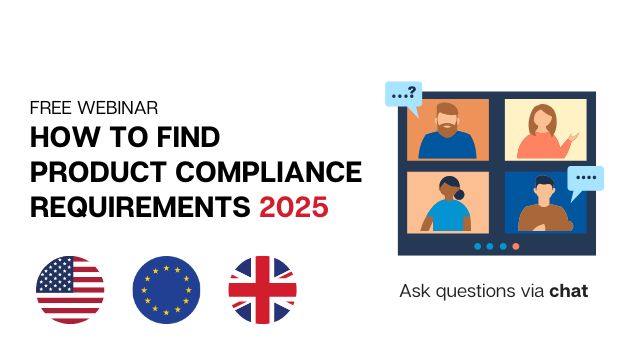
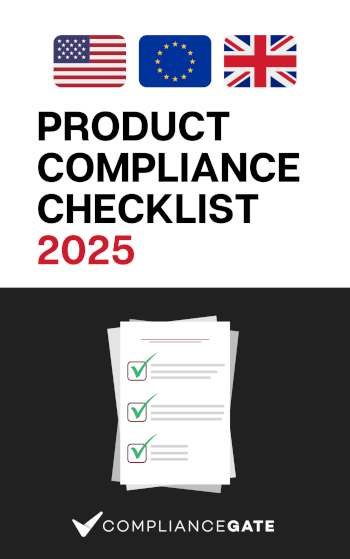




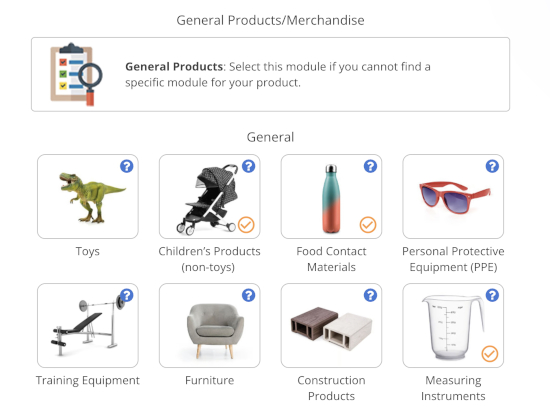









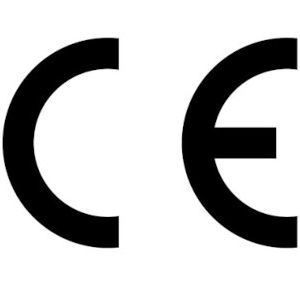




.png)
.png)
.png)
